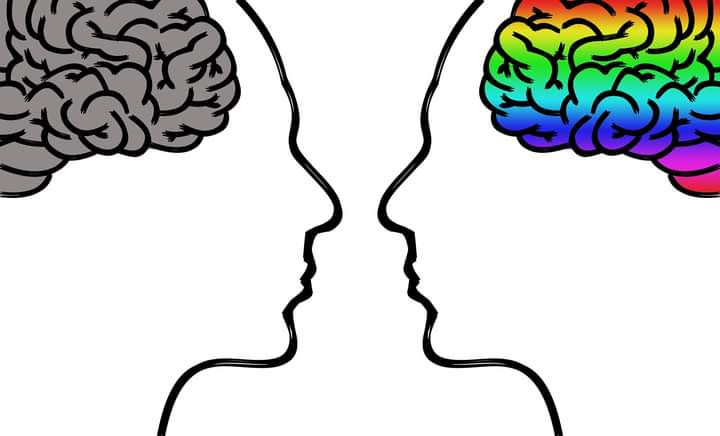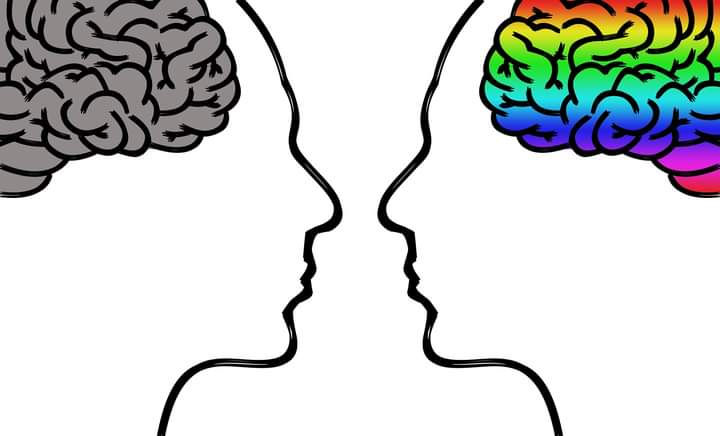Toxic and abusive relationships
- Debora Wiseman
- 19 de jul. de 2022
- 4 min de leitura

Relationships are fundamental, we need each other and we cannot be isolated. They are necessary for our balance and well-being. However, there are relationships that can bring more harm than good. We are referring to toxic and abusive relationships.
How would you identify a relationship, whatever it is, whether it is healthy or not? Can you see when your relationship with someone has crossed some threshold? These are strong emotional bonds, whether loving, fraternal, professional or family, Many people have difficulty identifying whether they are living in a toxic or, worse, abusive relationship. In both cases, it is not easy to break free and always brings harm to one or both sides involved.
What is a toxic relationship?
It occurs between people who do not support each other, have conflicting situations and end up disturbing each other, marked by competition and disrespect, among other negative and harmful characteristics. These toxic relationships don't necessarily have to have a culprit and a victim, but it's a vicious circle in which you both harm each other.
Are you living in a toxic relationship? Identify the signs:
* Predominance of negative moments of the relationship than positive ones;
* Predominance of dense emotions (sadness, anxiety, anger, confusion);
* The relationship sucks too much energy;
* Constant instability and "storms" in the relationship;
* Change of positive habits in everyday life in favor of the toxic relationship, such as: social withdrawal, abandonment of habits or interests that one had before.
* Often guilt and shame accompany this type of relationship, because the person feels guilty or ashamed of the frustration of defeat, for not having achieved a good relationship with that person, making the relationship even more toxic and causes even more dense emotions.
Consequences for those who live in a toxic relationship:
* Low self-esteem;
* Stress;
* Trauma;
* Fear and insecurity;
* Anxiety and depression;
* Loneliness;
* Chronic pain and problems;
* Insomnia and nightmares;
* Concentration problems;
* Physical, emotional, family, social and professional crisis.
* It is important to point out the differences between toxic and abusive relationship
For psychiatrist Maurício Leão Rezende, director of the Minas Gerais Psychiatry Association, "The difference between one and the other lies in the intensity of the damage and the consequences that each one of them can cause in the daily life of those who experience the relationship, especially in the most vulnerable part.."
The abusive relationship, according to the doctor-psychiatrist, brings with it an intentionality in the relationship, where one exists to satisfy the needs and desires of the other. “This almost always happens through threats and intimidation, whose objective is always to submit the other”, he says. For the doctor, there is a clear difference between the two types of relationship: “I think that the toxic relationship is a disease of the relationship, whereas the abusive relationship is a relationship of power, where almost always some gain is extracted”, he evaluates.
Signs of abusive behavior:
* Controls other relationships;
* Controls appearance;
* Controls everything in your daily life, from social networks to your relationships.
Do toxic relationships have a solution?
There can be two solutions to toxic relationships: turn them into a healthy relationship or leave the relationship.
Is it possible to turn toxic relationships into healthy relationships?
In some cases yes. Of course, the more toxic the relationship is, the harder it is to change. For this, it is necessary for the elements involved to be aware of the existing problems and willing to work on the challenge to improve the relationship. Basically, more than transforming toxic relationships into healthy relationships, it is about building new relationships and new relational dynamics.
Here are some valuable tips to help you regain self-love and let go of toxic relationships:
* Learn to listen to your own emotions: Pay more attention to yourself, and then you will become aware that you need a change;
* Break isolation: reconnect with your old relationships and/or make new friends. Break the isolation and count on the support of people who like you and who value you.
* Accept that the process is painful: almost no one ends a relationship and is happy and content. Suffering is normal, it's part of it, but it doesn't last forever. The grieving and recovery process takes some time and needs faith, strength and a lot of patience;
* Accept that there are ups and downs, and don't forget that there are countless ways to overcome bad days, they are fleeting;
* Do not repress emotions, talk about what you are feeling with people you trust, or seek therapeutic support;
* Change your perspective on relationships, respect and love, understanding that love is not synonymous with suffering, and that respect must be the basis of any relationship;
* Don't constantly try to find justifications.
* Fragment the problems, that is, make progressive decisions: when we take control and start to make decisions, no matter how small. We get stronger and our brain goes into problem-solving mode;
* The help and guidance of competent doctors and therapists is necessary and fundamental, with the aim of helping not only to get out of the relationship and to properly "mourn", but it can also help in cases where being in toxic relationships has already become in a person's pattern.
Remember: in relation to respect and love, first of all always your own!
IMPORTANT: We are Holistic Therapists and our treatment is alternative. Even with satisfactory results, it is essential to emphasize that only duly qualified doctors can diagnose diseases, indicate treatments and prescribe medication.
All the best!
See you next week
Shalom!
Deborah and Daniel Wiseman





Comentários